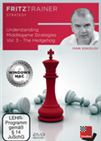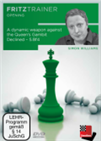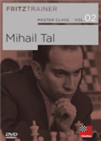With a foot in the door
 There is only a 3.3% chance of Richard Rapport not qualifying to the Candidates Tournament after having won the second leg of the FIDE Grand Prix in Belgrade, as Chess by the Numbers has shared on Twitter. The Hungarian grandmaster is up to number 7 in the live ratings list and can almost be counted as the seventh player to get a spot in the Candidates.
There is only a 3.3% chance of Richard Rapport not qualifying to the Candidates Tournament after having won the second leg of the FIDE Grand Prix in Belgrade, as Chess by the Numbers has shared on Twitter. The Hungarian grandmaster is up to number 7 in the live ratings list and can almost be counted as the seventh player to get a spot in the Candidates.
As we noted in a previous report, by Rapport’s own admission, luck has played a role in his getting the best result so far in the series. Besides getting victories in close matchups both in Berlin and Belgrade after taking considerable risks, Rapport has now been favoured by the drawing of lots for the third leg that kicks off next week. The three players, other than him, to have reached the final either in Berlin or Belgrade have all been seeded in the same pool, which means (in the worst-case scenario for him) only one among his three closest pursuers could reach the semifinals in that event — i.e. Hikaru Nakamura, Levon Aronian or Dmitry Andreikin.
 Throughout my playing career I have found the Hedgehog one of the most difficult type of positions to master. The basic aim of this video is to improve understanding of these complex positions and to help tournament players score better.
Throughout my playing career I have found the Hedgehog one of the most difficult type of positions to master. The basic aim of this video is to improve understanding of these complex positions and to help tournament players score better.Moreover, even if one of these three players reaches the final, it would be necessary for either Anish Giri, Leinier Dominguez or Maxime Vachier-Lagrave to win the tournament for Rapport to be disqualified — and only if one of these players outscores him on tiebreak criteria.
Rapport’s almost-certain qualification to the Candidates cannot be fully ascribed to luck by any stretch of the imagination, though. The Hungarian star did not shy away from employing his usual creative playing style in the first two legs of the series, and has demonstrated that he is particularly well-versed in dealing with imbalanced, sharp positions.

Richard Rapport
In the second game of the final match in Belgrade, Rapport had the white pieces and managed to get his opponent spending considerable amounts of time from as early as move 5. A tense struggle in the opening and early middlegame gave fighting chances to both players as the time control was approaching. On move 26, the contenders began to repeat moves, signalling an implicit draw offer. After the same position appeared twice on the board, though, Rapport decided to take his chances by deviating into a double-edged struggle — despite only having two minutes on the clock with over 10 moves to go to reach the time control.
The brave decision paid off. Andreikin soon faltered, and Rapport made the most of his chances in an excellent display of calculation and technical abilities to take home tournament victory, €24,000 in prize money and a near-certain qualification to the Candidates.

The final game of yet another remarkable tournament
Rapport’s 5.a3 out of a Queen’s Gambit Declined — with an exchange on d5 — was a tricky way to avoid long theoretical lines. Andreikin’s principled 7...c5 had the Hungarian thinking long and hard, though, as he spent over 15 minutes before deciding on 8.Be5.
 This DVD concentrates on the increasingly popular 5.Bf4 variation of the Queen's Gambit Declined and gives White a dynamic and aggressive weapon against Black's set-up.
This DVD concentrates on the increasingly popular 5.Bf4 variation of the Queen's Gambit Declined and gives White a dynamic and aggressive weapon against Black's set-up.
It was clear that we were in for an entertaining struggle between two in-form players. The tense strategic battle that followed left both players with chances to fight for more if they so decided. By move 25, White was targeting a weakness on e6, while Black had strong central pawns and a chance to infiltrate along the c-file.
Black can place either the rook or the knight on e4. Andreikin opted for 25...Ne4, and saw his opponent immediately challenging the centralized piece with 26.f3.
There followed 26...Rc3 27.Qd4 Rc4 28.Qe3 Rc3 29.Qd4 Rc4, with Andreikin offering Rapport to draw the game by a threefold repetition.
But Rapport did not want to take the match to rapid tiebreakers just yet. With two minutes on the clock, the Hungarian played 30.Qe5, not fearing to enter a position with both kings vulnerable to attacks.
Andreikin, not one to shy away from tactical complications, continued with 30...Nd2, allowing Rapport to break things open via 31.f5
White at the very least is giving up an exchange — 31...Nxf1 32.fxe6 followed. As so often happens in double-edged positions, an innocuous-looking imprecision turned out to be the decisive mistake, as Andreikin’s 32...Ke8 gave White the edge going forward, when 32...Ke7 would have kept the balance.
Had Black placed his king on e7, 33.Qxg7 would have been a check, but the black monarch would have found shelter on the queenside, escaping via d6 and c7. In the game, on the other hand, there followed 33...Qb6+ 34.Kxf1 Rc1+ 35.Ke2, and Andreikin saw it necessary to give up his rook to try to save the game with a perpetual check.
 On this DVD Dorian Rogozenco, Mihail Marin, Oliver Reeh and Karsten Müller present the 8. World Chess Champion in video lessons: his openings, his understanding of chess strategy, his artful endgame play, and finally his immortal combinations.
On this DVD Dorian Rogozenco, Mihail Marin, Oliver Reeh and Karsten Müller present the 8. World Chess Champion in video lessons: his openings, his understanding of chess strategy, his artful endgame play, and finally his immortal combinations.
After 35...Re1+ 36.Kxe1 Qe3+, it turns out that White can escape the checks by transferring his king to the queenside and eventually blocking a check with his queen on b2.
Andreikin probably knew that he was lost once the time control was reached, but he continued playing until move 45, when he ‘resigned the game’ in a friendly, joking manner.
45...Qf1+ allowed 46.Bxf1, and Andreikin hurried to congratulate his opponent for the fine victory. A great way to finish a remarkable game, and a remarkable tournament.
Links


















 There is only a 3.3% chance of Richard Rapport not qualifying to the Candidates Tournament after having won the second leg of the FIDE Grand Prix in Belgrade, as Chess by the Numbers has
There is only a 3.3% chance of Richard Rapport not qualifying to the Candidates Tournament after having won the second leg of the FIDE Grand Prix in Belgrade, as Chess by the Numbers has 




